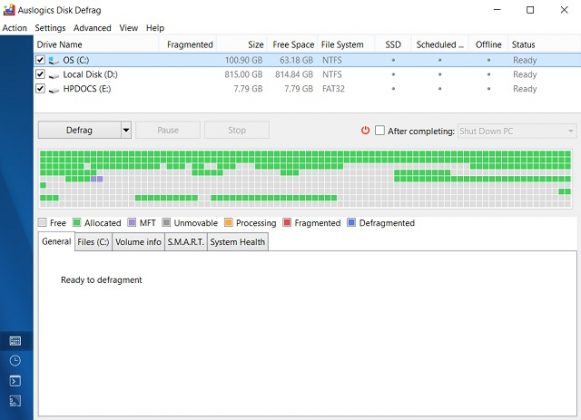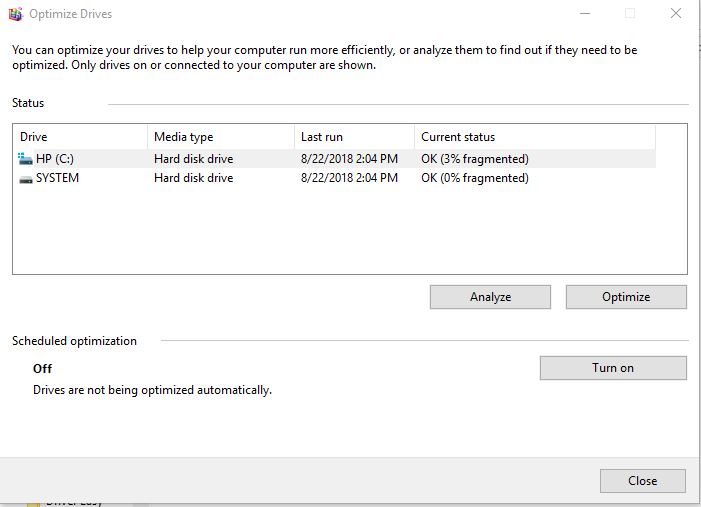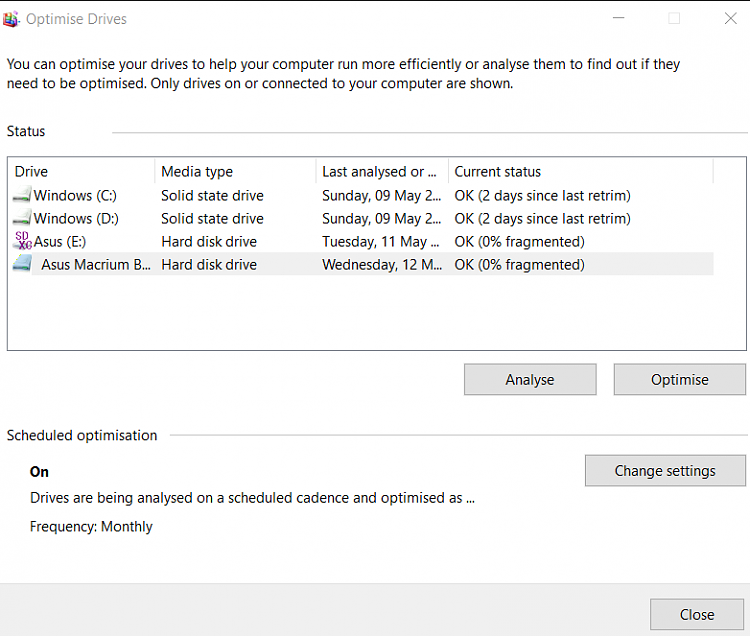
In fact, we even recommend that HDDs are defragged normally depending on usage. Despite the delicate metal platters spinning at speeds around 72,000 RPM, they are pretty resilient to normal usage.ĭon’t get me wrong, HDDs will wear out over time, but typically other mechanical failures will happen before the drive wears out due to overwriting the data. HDDs, although very sensitive pieces of equipment in the long run, were built in a way that they could withstand data being written, erased, and moved over and over again without wearing out the drive. On traditional mechanical hard drives, often referred to as HDDs (Hard Disk Drives), defragging wasn’t especially harmful. Hard drives spin so fast that this isn’t noticeable at a small scale, but over time it can start to take your computer longer and longer to boot up, open applications, load files, and perform other everyday tasks.

A single file might exist across several areas of the physical platter on the hard drive. Unfortunately, as your hard drive is writing and deleting data, it doesn’t always store things sequentially.

Think of it like the card catalog system at the library it’s easier to find a certain book when the card catalog is in proper order. Remind Me What Disk Defragging Is Again?ĭisk Defragging has long been a pretty reliable way to squeeze a little bit of performance out of a slower computer, especially on computers that were going on a year or two without much maintenance otherwise.ĭisk Defragging works by essentially organizing your hard drive, which stores the data on your computer, at the physical level. Let’s talk about why, and how you can tell.

For most modern computers, however, this common practice can actually harm your computer.

For decades, a common quick fix for a slow computer was to run a disk defrag on the hard drive.


 0 kommentar(er)
0 kommentar(er)
